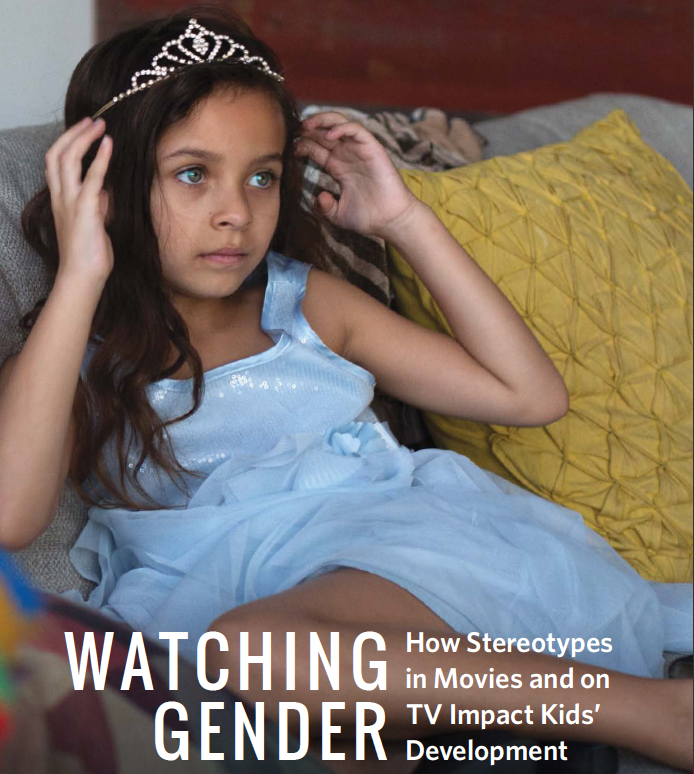 A new Common Sense Media study shows that learning gender roles from movies and TV shows has real consequences on kids’ self-esteem, relationships, and even their future careers.
A new Common Sense Media study shows that learning gender roles from movies and TV shows has real consequences on kids’ self-esteem, relationships, and even their future careers.
The Common Sense Media report, Watching Gender: How Stereotypes in Movies and on TV Impact Kids’ Development analyzes more than 150 articles, interviews, books, and other social-scientific research and finds that gender stereotypes in movies and on TV shows are widespread and very influential — teaching children what the culture expects of boys and girls. According to the report, a lifetime of viewing stereotypical media becomes so ingrained it can ultimately affect kids’ career choices, self-worth, relationships, and ability to achieve their full potential.
Key Findings:
- Media reinforce the idea that masculine traits and behaviors are more valued than feminine traits and behaviors, and boys who consume these media messages are more likely to exhibit masculine behaviors and beliefs.
- Media promote the notion that girls should be concerned about their appearance and should treat their bodies as sexual objects for others’ consumption.
- In adolescence, media use is associated with more tolerant views of sexual harassment and more support for the belief that women are at least partially responsible for their own sexual assaults.
- Heavier viewing of gender-traditional television content is associated with children’s gender-typed career aspirations.
- The television programs and films that children and adolescents watch reinforce traditional gender stereotypes.
- Youth of color may be particularly vulnerable to the effects of media use on gender-role development.
- Heavier viewing of gender-traditional TV and film content is linked to the expression of more rigid beliefs about what men and women do and are and how they behave.
- Accepting rigid stereotypes about the roles and attributes of women and men has consequences for development in childhood, adolescence, and adulthood.
- As children enter adolescence, media provide lessons on how they are expected to behave in romantic and sexual situations, and these lessons are strongly gendered.
- There are several ways to combat gender stereotypes and promote positive gender representations, including presenting counter-stereotypes, talking to children about media content, and providing media-literacy education.
Download the 19-page report to learn more about this research, and read this Common Sense Media blog post for recommendations on actions parents can take to counteract gender stereotypes.
Common Sense Media helps families make smart media choices. They offer independent age-based and educational ratings and reviews for movies, games, apps, TV shows, websites, books, and music, digital literacy and citizenship programs to educators and school communities (Common Sense Education), and works with policy makers, business leaders, and other advocates across the nation to ensure that every child has the opportunity to succeed (Common Sense Kids Action).
Source: Common Sense Media | Parents Talk About Watching Gender, https://www.commonsensemedia.org/research/watching-gender | © 2018 Common Sense
Do you have concerns about your child? We invite you to call our Care Coordinators at 650.688.3625 or email us at careteam@chconline.org to set up an initial Parent Consultation appointment.
This resource is filed under:





